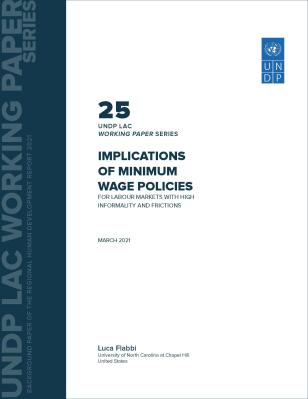Implications of Minimum Wage Policies for Labor Markets with High Informality and Frictions

Implications of Minimum Wage Policies for Labor Markets with High Informality and Frictions
pdf (1MB)
DownloadImplications of Minimum Wage Policies for Labor Markets with High Informality and Frictions
March 30, 2021
This paper develops a theoretical framework to study the impact of minimum wage policies on labour markets with high informality. The model is an extension of a search and matching model where firms and workers form jobs that can be both formal and informal. Contrary to previous works on Latin America focusing on the impact of the minimum wage on inequality, the policy implications drawn from the model focus on overall welfare. The main result is that introducing or increasing a mandatory minimum wage has an ambiguous impact on workers’ welfare. This ambiguity arises by taking into account not only the standard employment effects but also the equilibrium effects that change workers’ bargaining power with respect to firms. Interestingly, the bargaining power impact is present both when bargaining for formal jobs that follow minimum wage rules and for informal jobs that do not.

 Locations
Locations